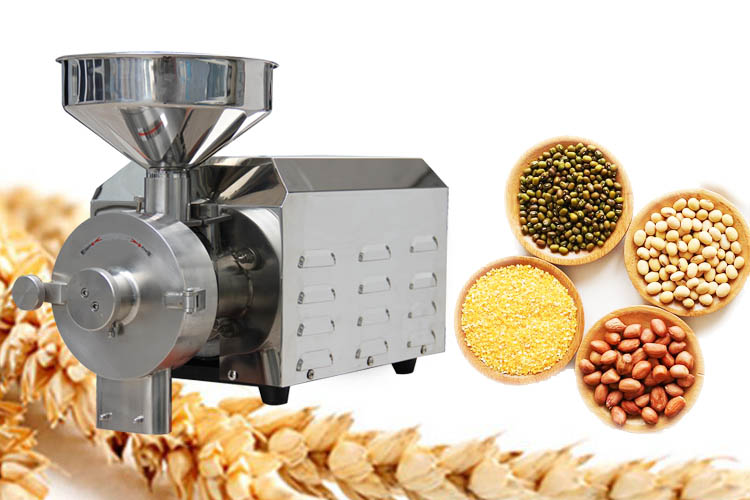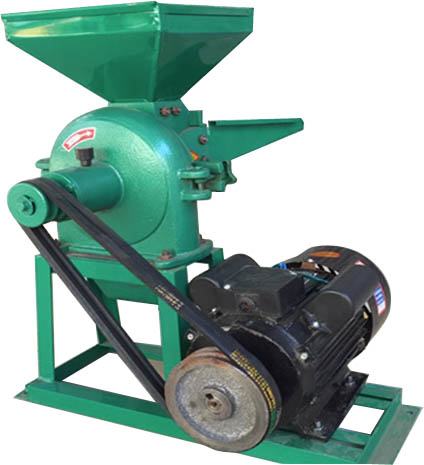What’s the difference between home use flour mill and grain mill?
The flour mill and grain mill are often used process grains, legumes and family ingredients into powder in order to make it more convenient to eat. Then, what’s the difference between home use flour mill and grain mill?

Home Use Grain Mill: A Household Essential
Home use grain mills have remained a staple in households across the world, catering to various culinary needs. From grinding soybeans into a fine powder for brewing to transforming rice into rice flour or breaking down ingredients for soups and dishes, these compact machines have found their place in the modern kitchen.
Key Features of Home Use Grain Mills:
Compact Size: Home use grain mills are designed to be small and lightweight, taking up minimal space in the kitchen.
Safety Measures: Safety is paramount in household equipment. Home use grain mills are engineered with safety features to prevent accidents during operation.
Appealing Aesthetics: Since these machines are meant for home use, manufacturers often prioritize attractive appearances to complement kitchen decor.
Fast Grinding Speed: Efficiency is crucial in domestic settings, and therefore, these mills boast fast grinding speeds to process ingredients quickly.
Limited Continuous Operation: Due to their compact size and domestic application, home use grain mills are not designed for continuous, heavy-duty operation. They are advised to be used for short durations, typically not exceeding 5 minutes, followed by a rest period to prevent motor damage caused by overheating bearings.
Flour Mill: A Versatile Commercial and Home Use Equipment

The flour mill, on the other hand, caters to a wider range of applications in the grain and food industry. It serves as an essential auxiliary tool in supermarkets and commercial settings, facilitating processes like roasting, frying, and milling grains. Flour mills offer a series of sophisticated features that enhance efficiency and output, making them suitable for both commercial and home use.
Key Features of Flour Mills:
Enhanced Technical Parameters: Flour mills boast superior technical specifications, allowing them to handle larger quantities of grains and ingredients more efficiently.
Higher Output Capacity: With their advanced design, flour mills can process larger quantities of materials in a shorter amount of time.
Continuous Working Capability: Flour mills are designed to work continuously for longer durations without overheating issues, making them ideal for commercial applications.
Milling Mechanism: Flour mills use a connecting shaft and grinding discs to crush grains and ingredients into fine powder. The relative rotation between the packing auger and mill sleeve, along with the interaction of the grinding discs, ensure rapid and efficient milling.
Versatility: Flour mills are equipped to handle a wide variety of grains and food items, making them suitable for commercial-scale processing.
While both home use grain mills and flour mills are utilized to grind grains and ingredients into powder, they serve distinct purposes and exhibit different features. Understanding these differences will help consumers make informed choices based on their specific needs, whether it’s for everyday home cooking or larger-scale processing in commercial settings.
